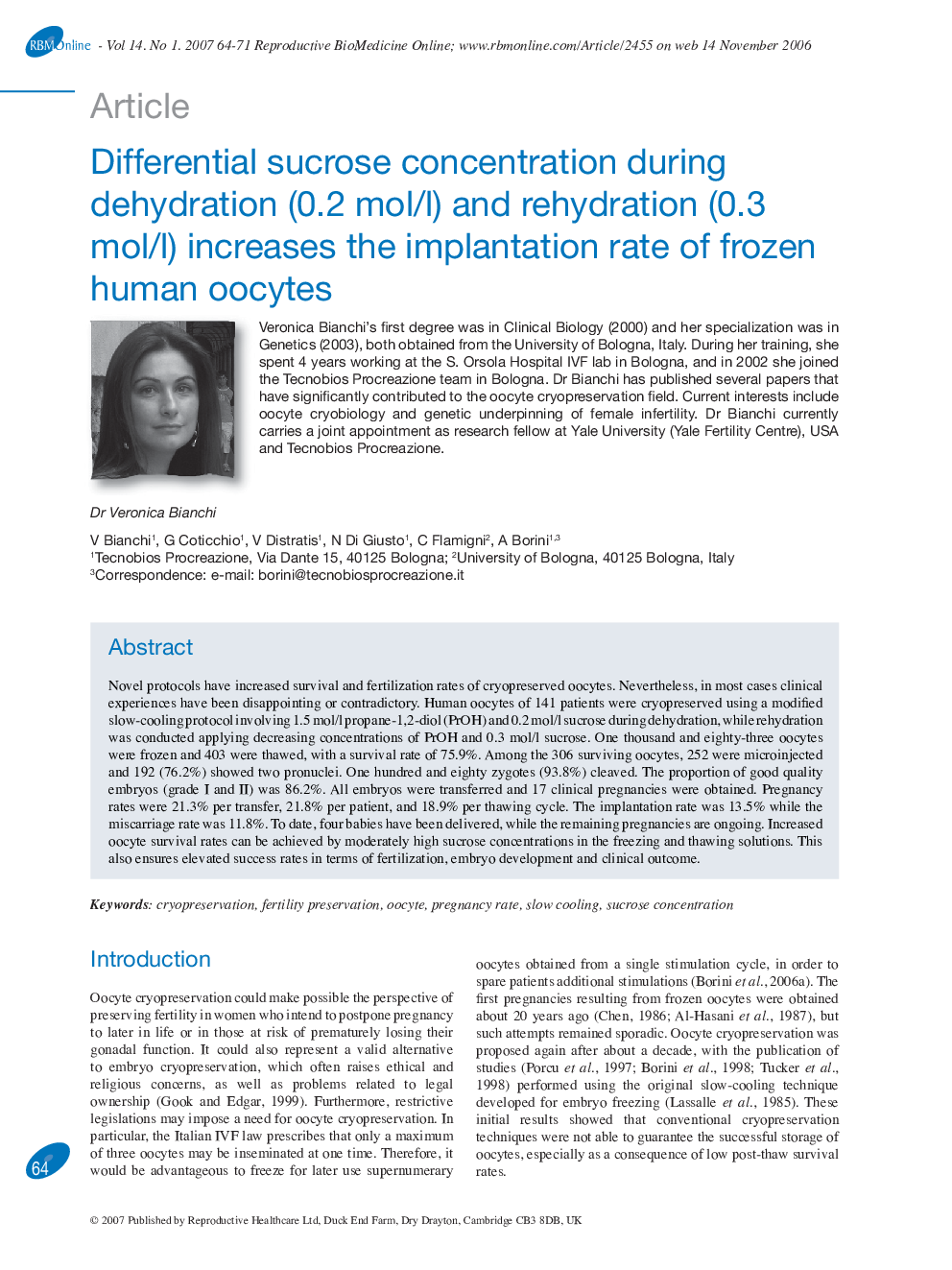| Article ID | Journal | Published Year | Pages | File Type |
|---|---|---|---|---|
| 3973252 | Reproductive BioMedicine Online | 2007 | 8 Pages |
Novel protocols have increased survival and fertilization rates of cryopreserved oocytes. Nevertheless, in most cases clinical experiences have been disappointing or contradictory. Human oocytes of 141 patients were cryopreserved using a modified slow-cooling protocol involving 1.5 mol/l propane-1,2-diol (PrOH) and 0.2 mol/l sucrose during dehydration, while rehydration was conducted applying decreasing concentrations of PrOH and 0.3 mol/l sucrose. One thousand and eighty-three oocytes were frozen and 403 were thawed, with a survival rate of 75.9%. Among the 306 surviving oocytes, 252 were microinjected and 192 (76.2%) showed two pronuclei. One hundred and eighty zygotes (93.8%) cleaved. The proportion of good quality embryos (grade I and II) was 86.2%. All embryos were transferred and 17 clinical pregnancies were obtained. Pregnancy rates were 21.3% per transfer, 21.8% per patient, and 18.9% per thawing cycle. The implantation rate was 13.5% while the miscarriage rate was 11.8%. To date, four babies have been delivered, while the remaining pregnancies are ongoing. Increased oocyte survival rates can be achieved by moderately high sucrose concentrations in the freezing and thawing solutions. This also ensures elevated success rates in terms of fertilization, embryo development and clinical outcome.
